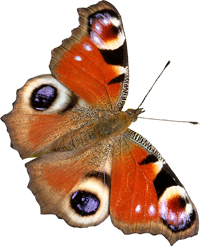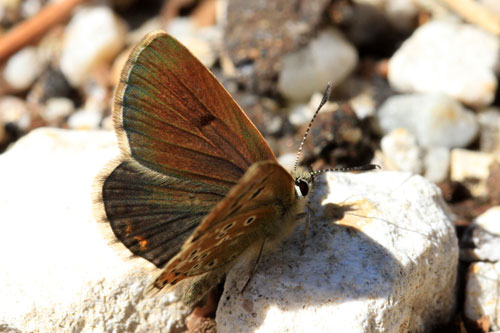
Soria, Spain, July 2011
ssp. hasselbarthi.
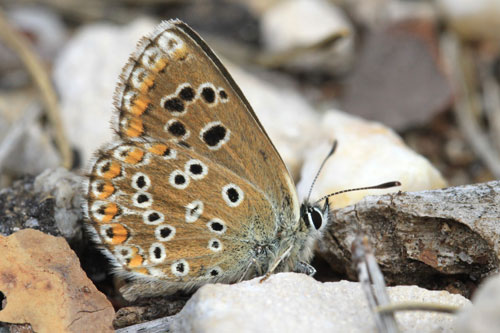
Soria, Spain, July 2011
ssp. hasselbarthi.
Field notes and information
A speciality from the Spanish sierrras and mountains. Also found from one, possibly two localities in France. It is generally hard to find and very local. Identification can be difficult due to the presence and abundance of several similar species.
Identification & Similar species: Compared to the other Aricia sp., it generally lacks red-orange marking on the upperside. The underside forewing cell spot is often large and round and there is a pronounced curve in the post discal row of spots.
The Aricia are separated from the similar blue genus Polyommatus by the lack of blue on the upperside in the males and the post discal line of spots is not a gental curve due to the displacement of the spot of space 6.
Distribution & Flight: Many of the sierras and mountains of Spain. It is known from one location in the French Pyrenees. Most supbspecies fly in a single brood in between June and August.
Habitat & Behaviour: Very dry grassy places and slopes. The larval food plant small flowered pink geranium, Erodium sp. usually common.
Variation: The form morronensis flies across many sierras of Spain.
From Soria, hasselbarthi has somehwat washed out underside markings and particularly large underside forewing spots. It is double brooded.
From the Sierra Nevada ramburi flies at very high altitudes in a single brood.
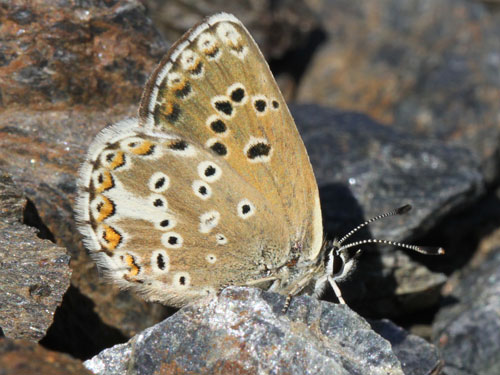
Sierra Nevada, Spain, July 2013
ssp. ramburi.
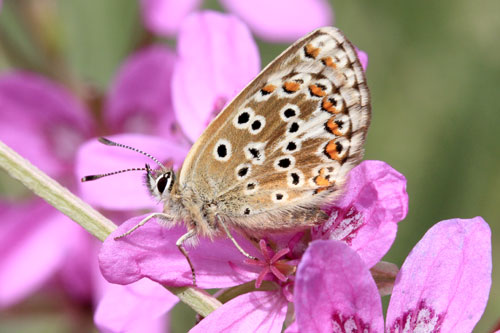
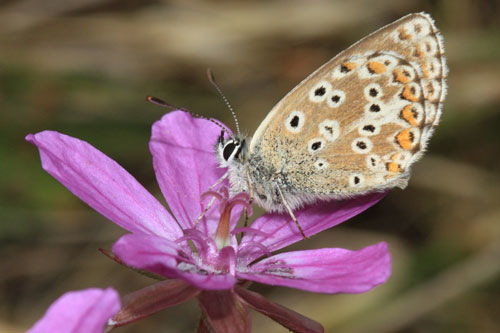
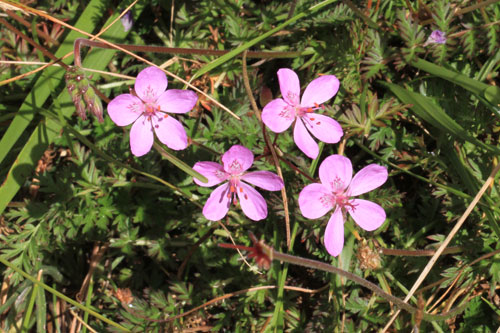
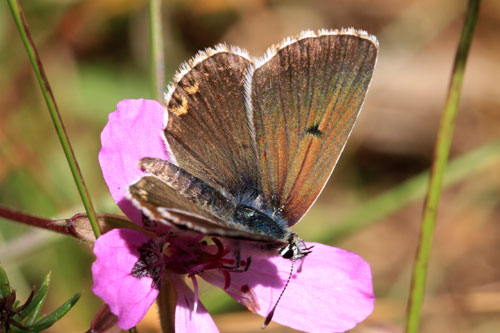
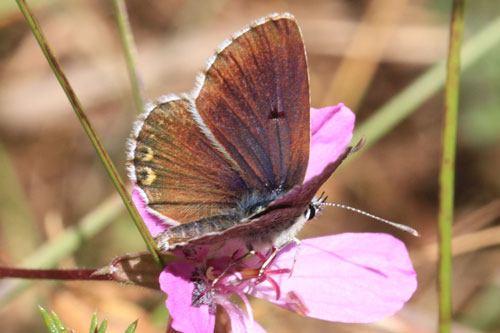
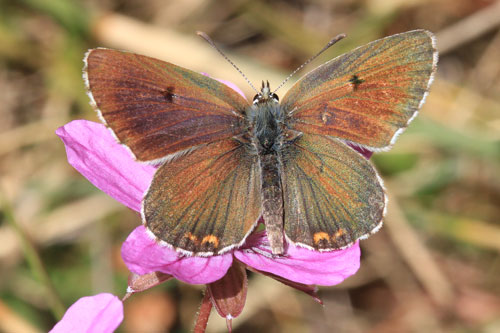
Soria, Spain, July 2011
Resting on the larval food plant.
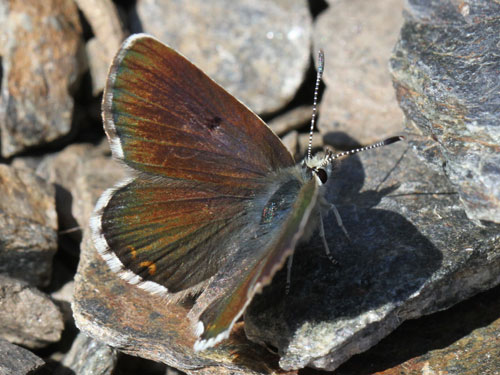
Sierra Nevada, Spain, July 2013
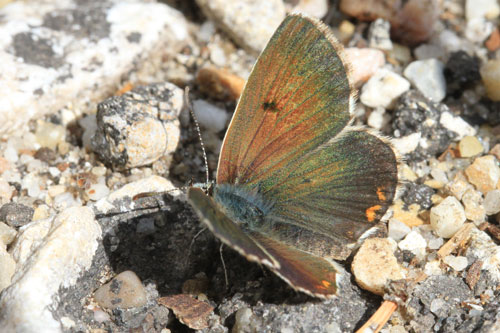
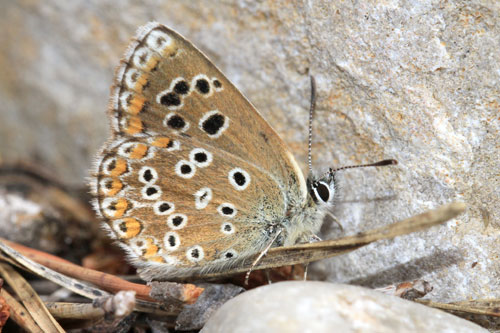
Soria, Spain, July 2011
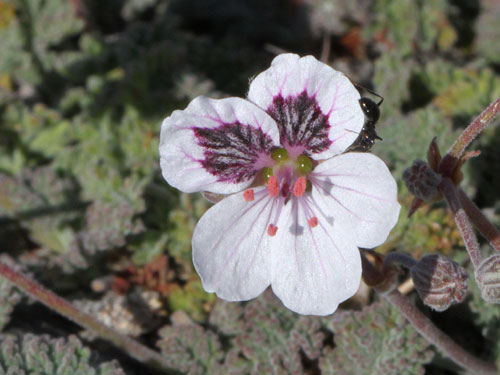
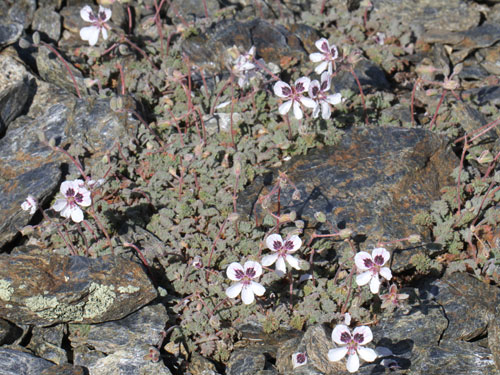
Sierra Nevada, Spain, July 2013
The larval food plant Erodium petraeum for ssp. ramburi.
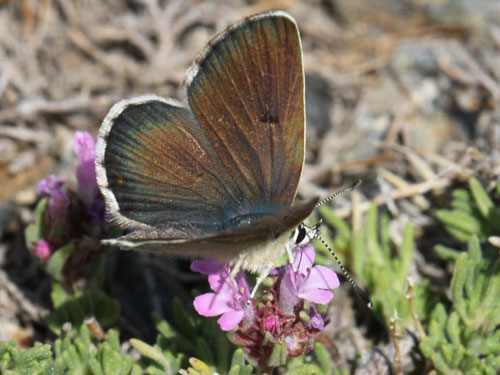
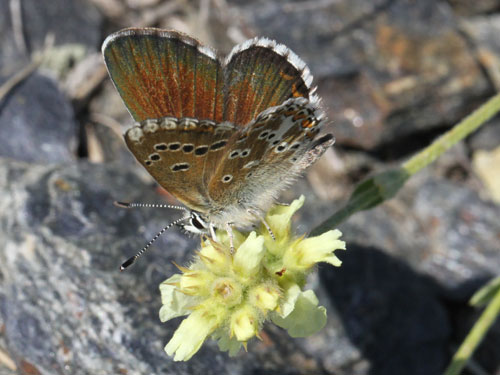
Sierra Nevada, Spain, July 2013
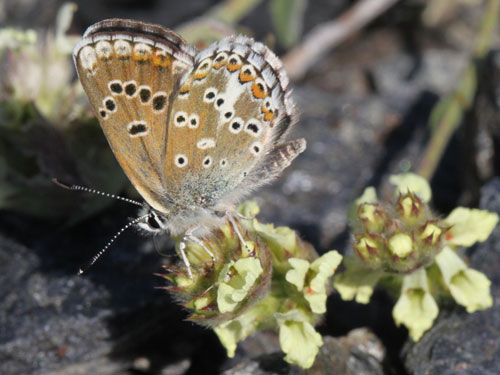
Sierra Nevada, Spain, July 2013
